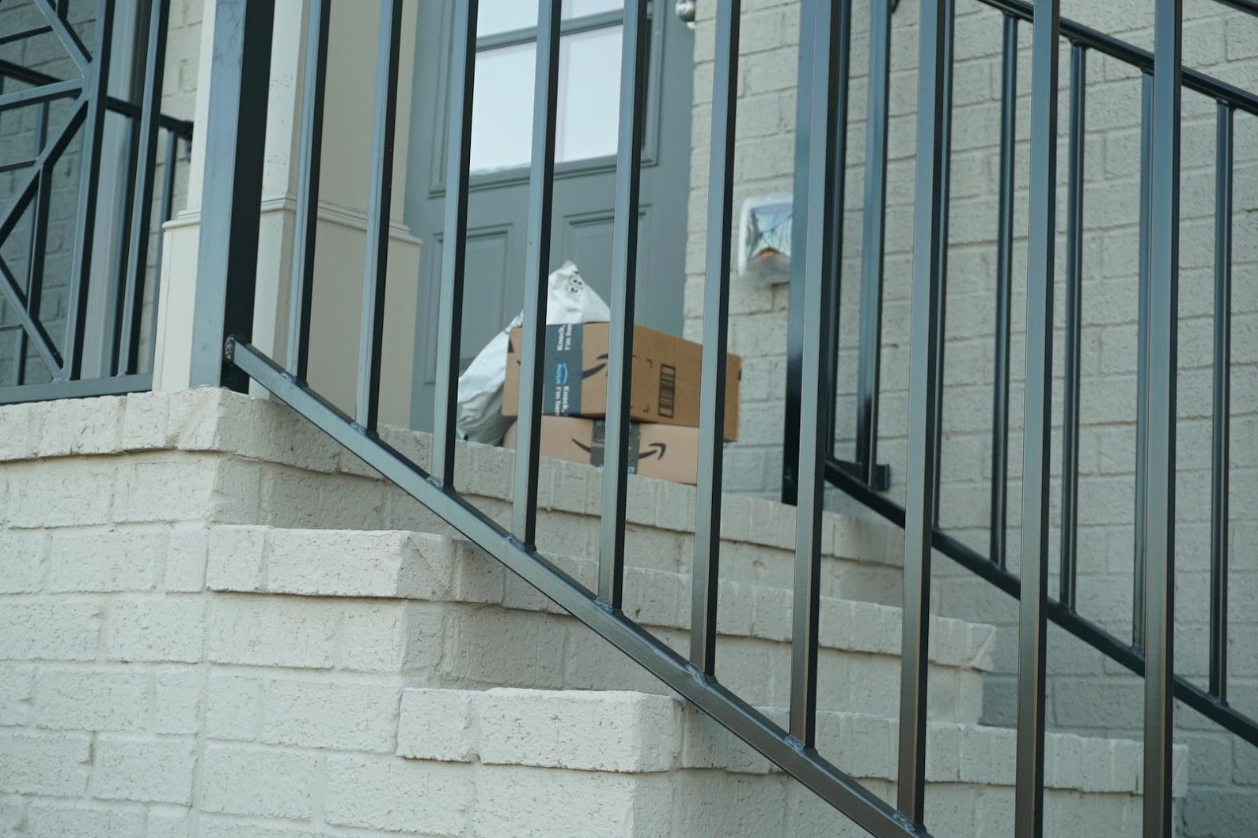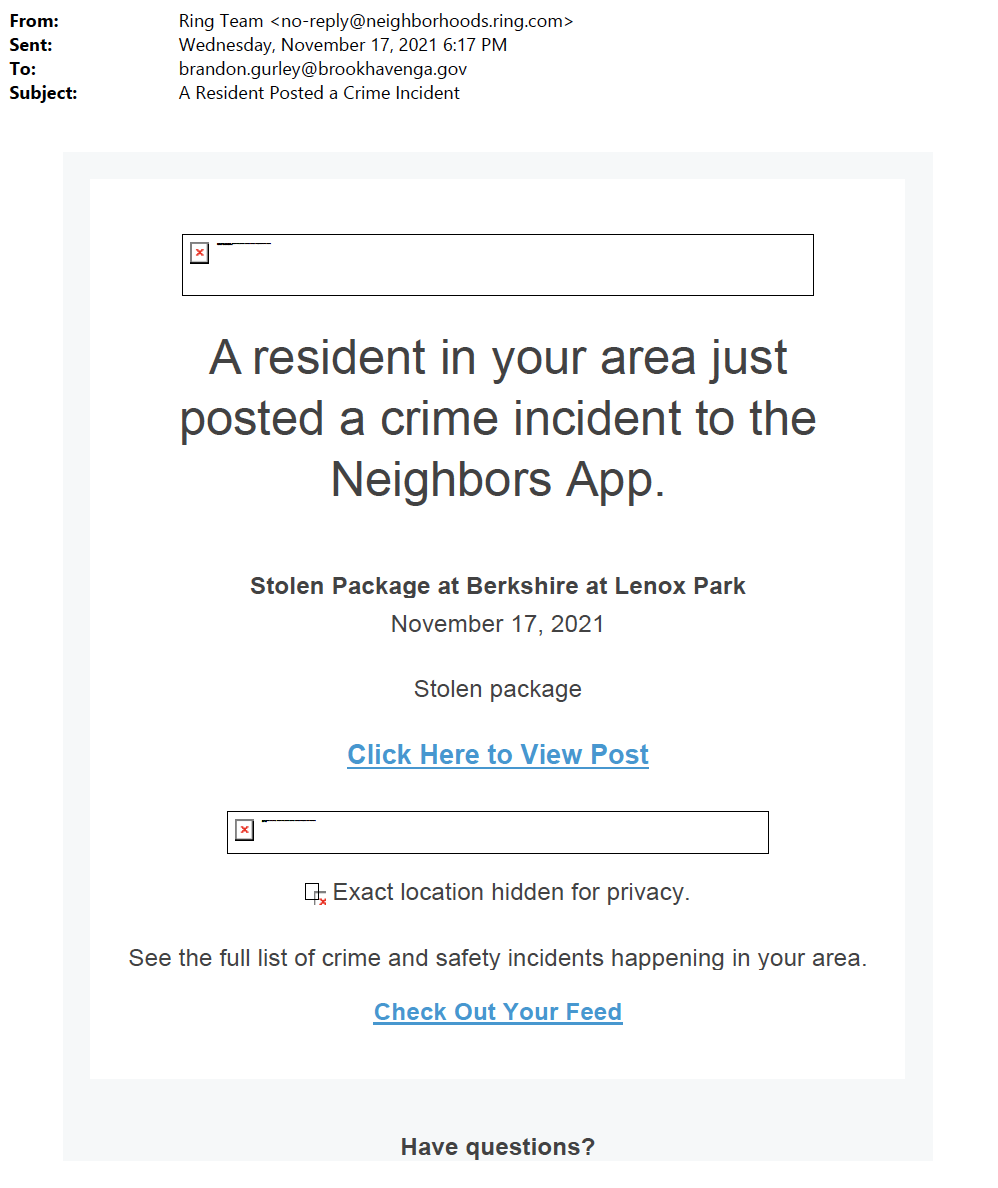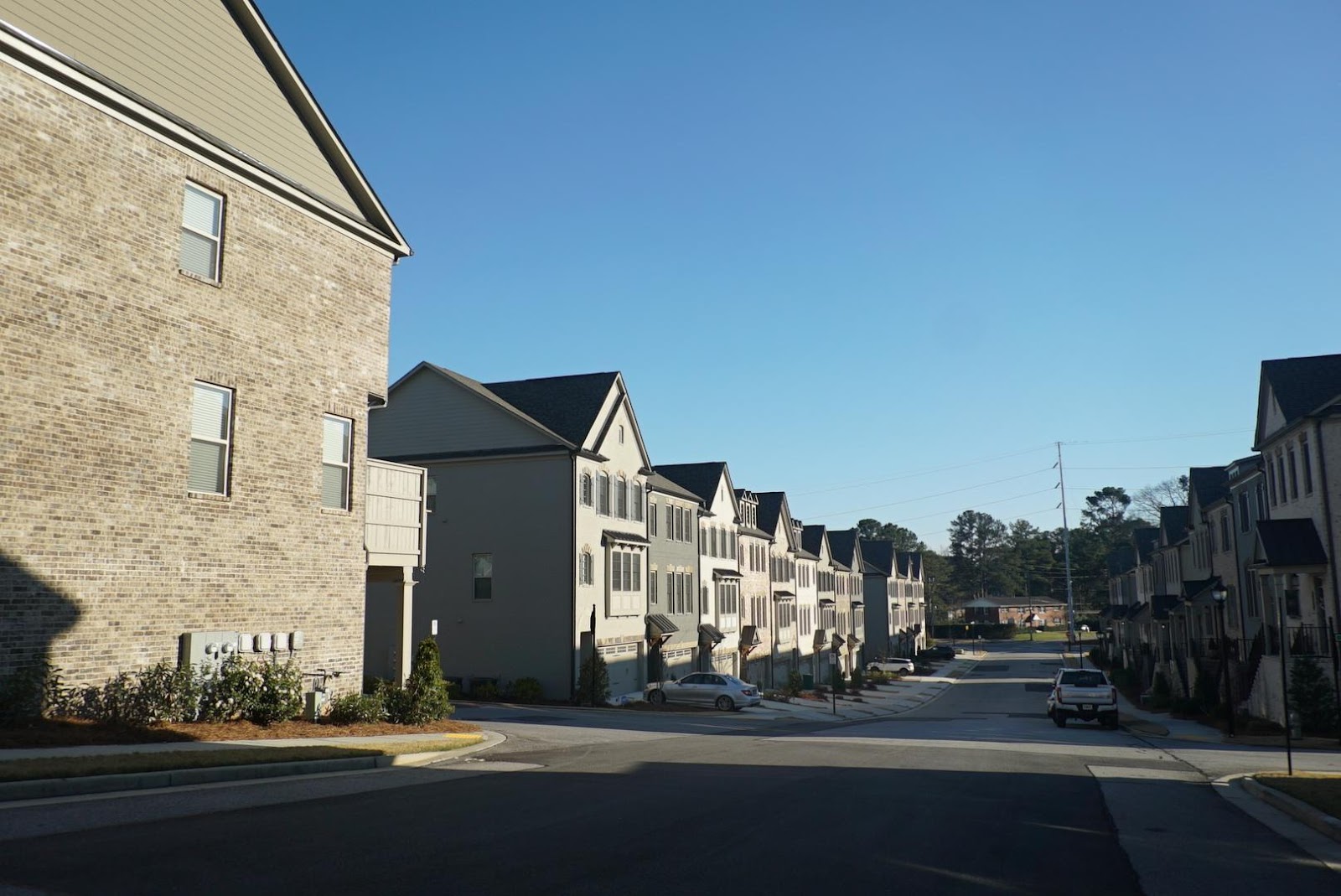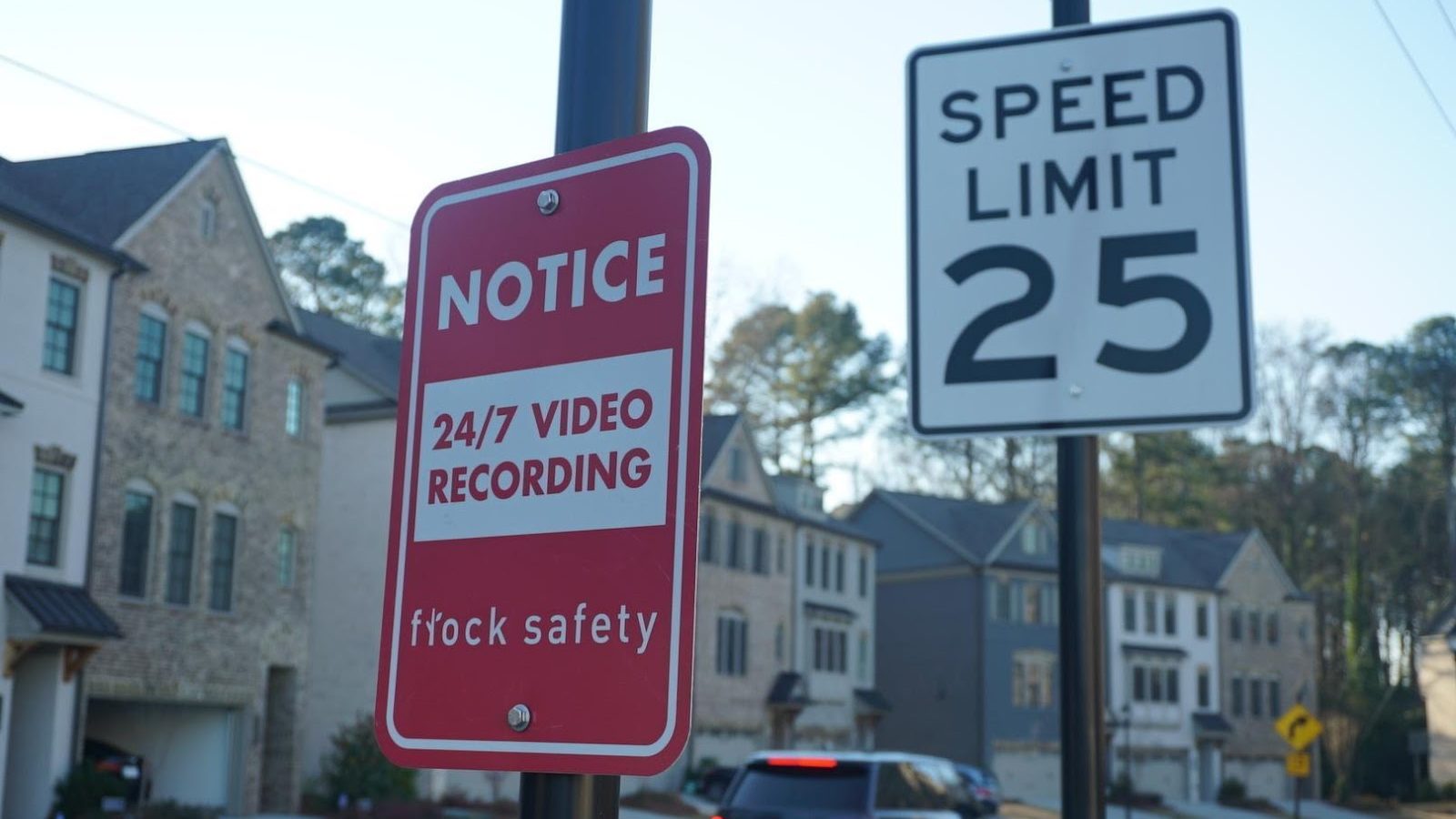Over the course of the coronavirus pandemic, e-commerce surged as lockdowns and social distancing confined many Americans to their homes. Now, even as many restrictions have been lifted, online shopping remains above pre-pandemic levels, suggesting that home delivery is evolving from a simple convenience into a more central part of everyday life for many people.
But the rising popularity of having goods delivered directly to one’s doorstep has come with increased attention on another phenomenon: porch piracy.
In communities across the country, residents have expressed concern about stolen packages, with outrage spilling out from online platforms like NextDoor and Facebook. Now, lawmakers around the country are aiming to crack down on it. Over the past three years, eight states — Texas, Michigan, Oklahoma, Arkansas, Tennessee, Georgia, Kentucky, and New Jersey — have passed laws increasing the penalties for package theft from a misdemeanor to a felony. Another five have introduced similar legislation.
Porch piracy is “kind of a cutesy name for a very serious offense,” Bonnie Rich, the Republican state representative who introduced Georgia’s new porch piracy law, said last year.
The new measures have been sponsored by both Republicans and Democrats, and in some cases have been bipartisan efforts. The issue is even receiving attention at the federal level. In February, Representative Dean Phillips (D-Minn.) introduced the Porch Pirates Act of 2022. Federal law already treats the theft of mail and packages delivered by the U.S. Postal Service as a felony. The new legislation would expand the statute to include private carriers like UPS, DHL, and Amazon.
The increased focus on package theft comes despite the fact that government authorities do not reliably track package theft. But the lawmakers proposing this legislation say the issue is a prominent one.
“We are having an epidemic of porch piracy right now,” Rich said in 2020.
Some Georgia lawmakers argue the new law is an ineffective response to an issue that allows politicians to appear tough on crime. Scholars who study surveillance and package theft say the measures encourage the spread of technology that can threaten people’s privacy. And groups like the ACLU of California, where lawmakers introduced a porch piracy bill last year, say they may disproportionately impact people of color, noting that homeowners are more likely to call police if they see a group of Black teenagers come onto property in their neighborhood than they would be if the teenagers were white.
Critics of the laws also argue that, for individuals convicted of package theft under the new measures, the repercussions far outweigh the harm. Felony convictions have consequences beyond formal sentencing, as criminal records may bar individuals from obtaining jobs, voting in elections, and receiving government benefits.
Still, the new laws and the ways in which police pursue package thieves highlights the lengths to which lawmakers and residents are willing to go in order to protect individual property.
“People want [to] be able to be safe in their communities, and there’s no other place to feel safe than your home or place of habitation,” Evan Low, a Democratic Assembly Member from California, who represents a district that includes Silicon Valley, told Type Investigations and The Guardian. “And there is a significant sense of violation when someone is on your property, or in your place, your habitation and something gets stolen.”

One of the stoops where a porch pirate in Brookhaven struck. Image: Lam Thuy Vo/Type Investigations and The Guardian
Georgia’s new porch piracy law may soon be put to the test, following a spate of package thefts last year in Brookhaven, an affluent town just a 20-minute drive from downtown Atlanta.
A woman and her husband reported the first incident in August 2021. According to a police report, a slim Black man wearing a face mask, a baseball cap, washed out jeans, and flip flops appeared at the door of the couple’s house moments after their Amazon packages had been delivered. He picked up the packages and stashed them in the back of his car.
The couple stepped outside to confront him, but the man drove away toward the exit of the subdivision. The same man is alleged to have taken packages in at least three neighborhoods, according to police reports.
Using an arsenal of surveillance gear — from camera footage provided by residents to license plate scanners — police identified a suspect. Jacob Kissel, a sergeant at the Brookhaven Police Department who helped investigate the incidents, said a warrant remained out for the suspect’s arrest as of July 2022. If apprehended and prosecuted, he’d be one of the first people in DeKalb County to be charged with a felony under the state’s new porch piracy law, which went into effect last summer.
Some of the items the man allegedly stole? A set of string lights (worth $200), two pairs of Spanx ($23 and $30), paper towels ($17), 150 plastic plates ($51), a table runner ($13), decorative baskets ($12 and $16), a dinosaur children’s light ($30), and bridal shower napkins ($13).
Kissel said residents might be tempted to dismiss the loss of such low-value items as not worth investigating — let alone prosecuting. But he said reporting package theft is important for law enforcement to know where to focus time and resources.
“You know, it’s about protecting yourself,” Kissel said. “And it’s also about no crime is too little. You know, no crime is too little to report.”
Around the country, some lawmakers have similarly argued that addressing or criminalizing package theft is about more than the monetary loss. “We’re talking about going after those individuals who are going from home to home to home, and just picking up these packages. … This is organized crime,” Low said.
“It could be a $10 back scratcher. Or it could be $20,000 worth of somebody’s … cancer medication,” said Gene Wu, a former prosecutor and Democratic member of the Texas house of representatives, who proposed a porch piracy law for the state. “But the violation that a person feels, the violation to a private space is just as serious, right? You don’t care what item was stolen, but you care that a person came onto your property and stole something that was left for you.”
Type Investigations and The Guardian reached out to lawmakers in all 13 states that have passed or proposed porch piracy laws. Only Low and Wu agreed to speak about the new measures. Rich declined multiple requests for an interview.
The federal government does not reliably track statistics on package theft, making it difficult to assess its prevalence. According to a 2021 survey of 1,000 Americans conducted by SafeWise, a company that reviews safety products and conducts research on home security systems, 64% of respondents said they experienced package theft in the previous 12 months. Based on the survey results, the company estimated that 210 million packages were stolen across the country in 2021.
According to data collected by the Federal Bureau of Investigation, however, larceny — which encompasses package theft and other non-violent property crimes like bike theft and shoplifting — has decreased overall since the early 2000s based on the latest available data from 2020. It is now lower than at any point since at least 1985. (Nearly 40% of law enforcement agencies did not report data for 2021 after the FBI revised its crime statistics collection program , leaving massive data gaps that politicians may be able to exploit over fears about rising crime, the Marshall Project reported earlier this year.)
Outcries around package theft may not necessarily be proportionate to the prevalence of the crime, said Jeff Asher, a crime analyst and consultant who has worked with police departments, local government officials, and federal agencies.
“It’s fallen a long way,” Asher said of property crime. “It’s fallen consistently.”
That’s also the case for larcenies in all eight states that have passed package theft laws, including Georgia, where larceny has fallen by 54.3% since 2000, according to FBI crime statistics.
Even so, the crime has struck a nerve. Package theft feels deeply personal because it happens at people’s homes — sometimes when residents are just feet away.
“I believe very strongly in the castle doctrine — your home is your castle,” said former Georgia Rep. Bert Reeves, when the state’s legislation was first introduced.
This sentiment is further amplified through the proliferation of doorbell cameras, which are marketed partly as a way to combat package theft. According to Asher, in the social media age, people may perceive property crime rising around them when they see a viral video of a particularly brazen incident, headlines about a spike in shoplifting, or footage posted on neighborhood platforms like NextDoor and Facebook, even if the reality may be that crime rates are going down.
“It’s a lot easier to get a Ring doorbell. You’ve got video of it — look at this guy breaking into my car right outside my window,” Asher said. “And so you have no sense of the context. ”
Package theft does seem to be front of mind for many people on neighborhood social media platforms when discussing safety in their neighborhoods. A soon-to-be-published analysis by MIT PhD candidate Dan Calacci of Ring alerts posted to the Neighbors app from users in Los Angeles showed that package theft was the number one topic that people who own Ring cameras posted about, followed by concerns about suspicious people ringing the doorbell and car break-ins.
In Brookhaven, police officers received at least four alerts from the Neighbors app about package theft in 2021, according to documents obtained by Type Investigations and The Guardian through a public records request.
“Literally watched a video 8 mins late of a brunette woman taking a package from our stoop,” one message read. “Someone drove up to my house and ran up to my front door and stole a package,” read another.

A sample alert from Neighbors to a Brookhaven police officer obtained through public records requests. Image: Brookhaven Police Department
The issue of package theft has galvanized local residents and sparked increased engagement with law enforcement, said Andrea Garrett, a former community officer at the Brookhaven Police Department who now works as a police officer in nearby Gwinnett County. “I would probably say porch piracy has brought the most communities together. Because there’s so much involved — you know, this is their property that they’re seeing — [when] somebody trespasses onto your own property and takes something, it’s very personal.”
In Brookhaven, some residents feel the increased focus on package theft is justified. Ellie Sharp, who moved to the Skyland Brookhaven community a few years ago, said that while penalties for package theft “shouldn’t be overly egregious,” she supported Georgia’s new felony law. “I think if you’re soft on crime people are just going to keep doing it,” Sharp said.
Opponents, however, worry that harsher felony punishments are an overreaction.
“I think people feel in terms of moral fault that if they bring the hammer down on people who committed the wrong, that’s a totally satisfactory way to manage the problem,” said Georgia state representative Josh McLaurin, a Democrat. But while “people may feel more vindicated,” he said, it “doesn’t do anything to actually reduce the amount of harm.”
Better solutions, he said, would include preemptive measures to prevent theft, such as a community lock box for packages.
“It seems to me,” McLaurin said, “that the move to make this a felony is more about messaging and toughness.”
The issue of package theft highlights how surveillance technology has become heavily embedded in communities around the country. Brookhaven is a prime example.
In Skyland Brookhaven, one of the communities where packages were stolen last year, doorbell cameras are so pervasive that one resident told The Guardian and Type Investigations she feels pressure to install one. “I feel like I need to [get a Ring camera],” said Stacy Pancetta. “Everyone, literally, you can look at every house, you’re like, ‘Ring camera, Ring camera.’”
The majority of the houses on the street where the alleged thief stole two packages last year appeared to have Ring cameras, as of early March 2022.

A row of houses where the alleged thief who is a suspect in serial package theft struck. Image: Lam Thuy Vo/Type Investigations and The Guardian
While private citizens have installed doorbell cameras in order to protect their properties, these cameras have increasingly become an extension of the dragnet of surveillance available to police.
The Brookhaven Police Department is one of more than 2,000 police and fire departments across the country that have forged partnerships with Amazon’s Ring network, which allows law enforcement to request footage from local residents. Ring’s Neighbors app, where residents can post about crimes and upload doorbell camera footage, sends alerts to the Brookhaven police and has become a key tool for local law enforcement.
“The Neighbors portal is something that we constantly monitor,” said Jacob Kissel.
Those cameras are supplemented by a network of license plate scanners from the company Flock Safety, which markets itself to homeowners associations, businesses, and law enforcement agencies. Skyland Brookhaven has a Flock Safety system installed, which provides data on license plates to the Brookhaven Police Department.

Image: Lam Thuy Vo/Type Investigations and The Guardian
About six years ago, Brookhaven police also launched “Operation Plugged In,” a program that allows residents and businesses to register their private surveillance cameras with the department, so that police can reach out to request footage if a crime occurs in a certain area. Hundreds of individuals and businesses have registered their cameras as part of the program, according to Garrett.
All of this technology has made policing quicker and easier, Kissel said. “We used to go out and knock on everybody’s door after a crime happened,” he said. “Now we can pull up a map and there’s bullet points of all of our registered residents with cameras.” That allows police to simply pick up the phone and ask residents “Can you look at your system? Is there anything that you may be able to provide us?’”
In this way, Andrea Garrett said, police have been able to forge closer ties with local residents. “They feel like they’re a part of the investigation, because they are,” she said. “And in turn, we help decrease crime.”
Overall Brookhaven is known as a safe place to live. It’s an affluent area with a median household income that is more than 1.5 times the amount in Georgia. The population of Brookhaven is 60% white, whereas the metropolitan area as a whole is 46% white.
In 2017, Brookhaven was named the safest city in DeKalb county and one of the top ten safest cities with populations over 30,000 in Georgia by a company called SafeHome. Brookhaven’s police chief touted the distinction in the department’s annual report.
Will Suit, a resident of one of the gated communities where packages were stolen last year, said such incidents were unusual in Brookhaven.
“I mean, we’re not nosy, but we kind of see who’s coming and going [into our subdivision],” said Suit. “So it was a surprise that that happened. … These are all very hardworking, good people here. … It was a shock.”
Some lawmakers have raised the specter of organized criminal gangs roving through cities to steal packages in a systematic way, costing companies and consumers millions of dollars. But there’s no clear evidence that most package thefts are committed by organized criminals, said Ben Stickle, an associate professor of criminal justice administration at Middle Tennessee State University, who studies package theft.
While media reports often depict package theft as premeditated, Stickle said it may just as often be a crime of opportunity, and there is not enough information about the subject to draw conclusions one way or another.
“There’s two general categories of this crime. One is just opportunistic — someone walking by sees the package and just takes it. The other we would call, from a criminology perspective, ‘organized, ’” said Stickle. Package thieves likely fall into both categories, he said.
Since Texas became the first state to pass a porch piracy law in 2019, at least 113 people have been charged with felonies related to mail and package theft in the state’s four largest cities, Austin, Dallas, Houston, and San Antonio, an analysis of data obtained through public records requests reveals.
There was no evidence that any of the individuals charged under the law were part of an organized crime ring. Seven were homeless people, some of whom said they were simply trying to find money for food, according to court documents obtained by Type Investigations and The Guardian.
Despite the fact that the new law was designed to combat package theft, several others who were charged under the law hadn’t stolen packages at all, but rather letters from community mailboxes.
In Brookhaven, Kissel said that while there are some serial package thieves, many of the perpetrators are simply bored teenagers — though Kissel warned that package theft acts like a “gateway drug” that can lead people to more serious criminal activity. “Maybe we can stop it before it turns into something bigger,” he said.
Scholars who study surveillance and package theft raise concerns around the widespread use of technology to catch package thieves, however. For instance, facial recognition technology has been known to misidentify people with darker skin tones. Calacci’s research has also shown that predominantly white neighborhoods use doorbell cameras and related platforms like Neighbors more frequently than their non-white counterparts, and may often use these platforms to practice “racial gatekeeping,” which can lead to increased policing of communities of color.
“There do seem to be these real racial dynamics at play,” Calacci said. Residents of predominantly white neighborhoods, he said, often use doorbell cameras to look at strangers or criminalize otherwise innocuous activity.
Lawmakers say the new laws making package theft a felony reflect the seriousness of the crime and the deep concerns of their constituents. But it’s unclear that residents truly feel strongly about the issue. One Skyland Brookhaven resident, who asked to remain anonymous to protect his privacy, said the package of his that was stolen last year was not a big deal.
At the time of the thefts, his homeowners association wanted him to call the police, so that’s what he did, he said. And he sent them doorbell camera footage as well. “We probably talked to the police maybe for a minute, and then we never heard anything else from them again,” he said.
But he and other residents in the neighborhood said that since the incidents last fall, package theft has not been an issue in the community, and they were surprised to hear that police were building a felony case around the thefts.
“I honestly think that’s a little extreme,” said Sabah Khandaker, a resident of Skyland Brookhaven who was taking a walk in the neighborhood with her 10-month-old child in her arms. “A lot of the resources that go into finding someone that has stolen a package, I’m sure it’s heavy and probably could be reallocated somewhere else.”